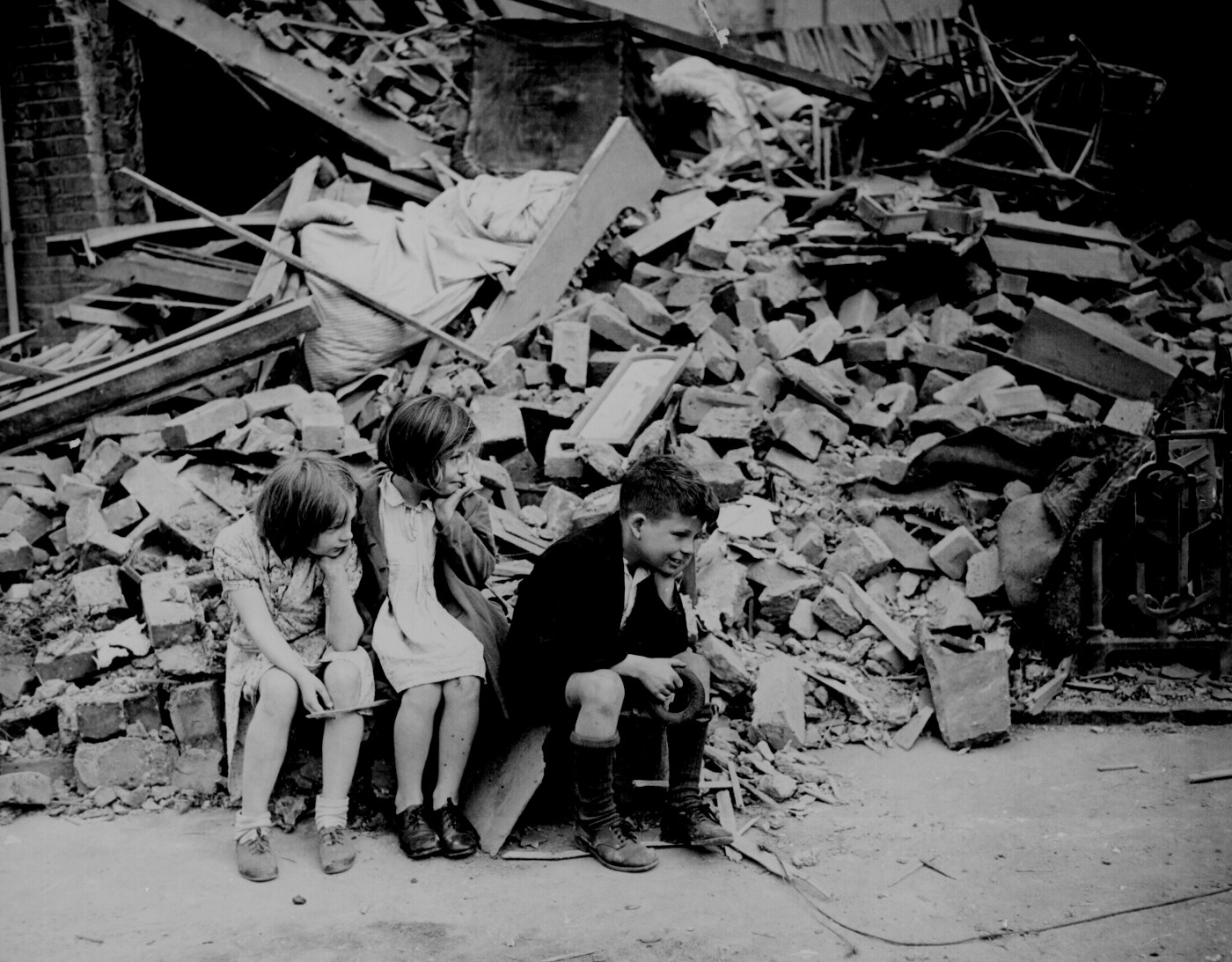
“…After the most brief pause the Dr continued his prayer…”
On June 6th, 1944, Allied forces successfully landed in Normandy, giving them a foothold for a massive ground invasion that split German forces between Western and Eastern fronts. In the eyes of many, this was the beginning of the end for Axis forces. Across the channel in London, it seemed that the darkest days of the war were over. The Blitz, the terrible German bombing campaign against England from September 1940 to May 1941, had claimed more than 40,000 civilian lives and destroyed two million houses.
But starting on June 12th, the Germans had something new in store: V-1 pilotless planes. These self-guided explosives had a range of 160 miles, meaning they could inexpensively hurl explosives at London over the English channel from launch sites in France and Belgium. The menacing sound of these pulse-jet propelled “buzz bombs” were described as making “…A terrific noise like an express train with a curious hidden undertone.” [1] When they reached their intended target the engine would cut out, the buzzing replaced by unnerving silence as the ton of explosives descended on its target.
The rumble of a V-1 interrupted one of D. Martyn Lloyd-Jones’ legendarily long congregational prayers. [2] Lloyd-Jones had recently become the sole pastor at Westminster Chapel in London, replacing the renowned preacher Dr. Campbell Morgan. And it was a typical morning service on June 18, 1944 until the congregation heard the loud drone of the missile. Lloyd-Jones later said, “I went on praying…until the noise was so great that I could not hear myself speak.” [3] Then the engine cut out and the bomb started whistling down to its destination. An English soldier in attendance later wrote, “The engine cut out almost overhead and after the silence, when the Dr faltered— a tremendous bang! The chapel structure cracked audibly under the effect of the blast and bits of ceiling and dust fell from the roof.” [4]
The bomb had detonated only a few hundred yards on the chapel at the nearby barracks where a service was in progress. More than sixty people were killed. A nurse from Westminster hospital had meant to attend that barracks service, but was running late and went to Westminster Chapel instead. That last minute decision probably saved her life. She wrote, “As the impact of the doodle-bug was heard, the entire congregation rose to its feet. After the most brief pause the Dr continued his prayer, as though nothing had happened, and we all sat down again. It was only after he had finished talking to God that anything regarding the incident was said to the congregation.” [5]
A bomb had just exploded yards away, yet “After a brief pause” he continued praying. I wonder what was going through his head during that brief pause. Was he startled? Was he scared, or had his nerves become steel after practicing medicine? Maybe he was irritated by the loud noise disturbing his time with God before the congregation. But whatever may have took place in that moment, after a brief pause he continued praying like nothing had happened.
I don’t know what was going on but I have a guess? I think he was embodying a passage in Colossians: “If you have been raised with Christ, seek the things that are above, where Christ is, seated at the right hand of God. Set your minds on the things that are above, not things on earth.”[6] Despite the very real danger, Lloyd-Jones deliberately chose to continue speaking to God. I think he did this because he understood the reality that as believers we have already been raised with Christ. He was in the presence of God, and God demands our utmost attention and respect. To be raised with Christ also means that our life is hidden with Him. Bombs may be falling, the virus may be spreading, but I am safe with Christ at the right hand of God.
The challenge of discipleship is recognizing this truth and living in light of its reality in a fallen, uncertain world. The challenge is to seek the things above and set our mind on things above. At many moments I find myself panicked and anxious. I check the news constantly. I try to self-medicate with mindless entertainment, but the dark continues to creep in. And unlike Lloyd-Jones, I may take far longer than a brief pause. Days go by, and the spiritual amnesia continues to have a hold on me. But then the Holy Spirit, often through other believers, reminds me of the truth that I have been raised with Christ. I am with Him now. I am safe in the throne room of God.
This heavenly reality does not mean we have no care or concern for that’s happening on earth. On the contrary, it emboldens and animates us to take action and be brave rather than being paralyzed by panic. It means declaring that life is more than self-preservation because our life is secure with Christ. It means loving our neighbors and thinking of the impact (positive and negative) we can have.
I thank God for the example of the many believers that have come before us. They give us examples of clinging to God and having faith in His goodness in the midst of danger. That’s what we need during this difficult and dangerous time. So next Tuesday I’ll write about two sermons from D. Martyn Lloyd-Jones that can remind us of our faithful Savior. I hope this blog will encourage us to set our minds and set our eyes on Christ. More balcony songs coming this Thursday.
Works Cited
Wikipedia WWII stuff
The Life of Martyn Lloyd-Jones—1899-1981, Iain H. Murray
[1] Murray pg. 255
[2] Some of these have been recorded on the Martyn Lloyd-Jones Trust. The first three are 15’43’’, 12’15’’, and 15’31’ respectively. https://www.mljtrust.org/free-sermons/prayers-dr-lloyd-jones/
[3] Ibid.
[4] Ibid.
[5] Ibid., 256
[6] Col. 3:1-2. Also see Ephesians 2:4-6
